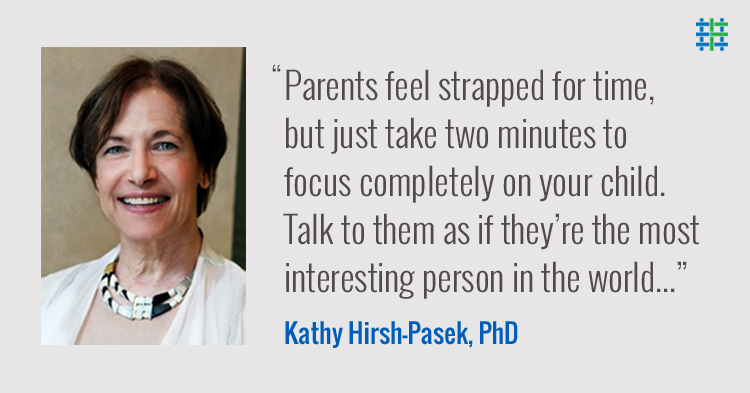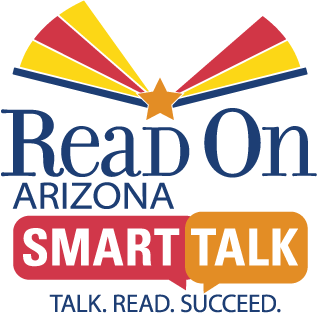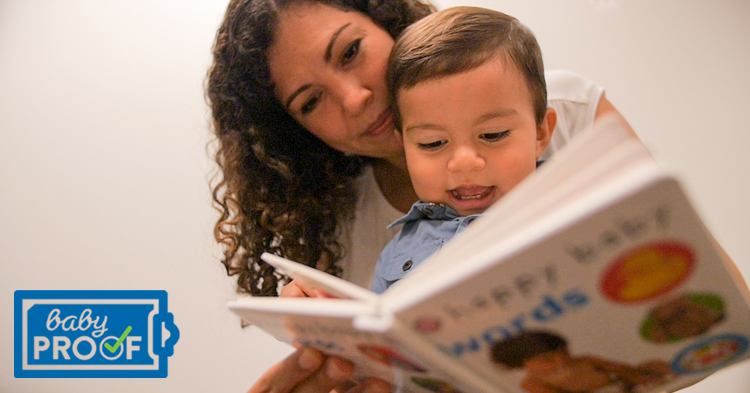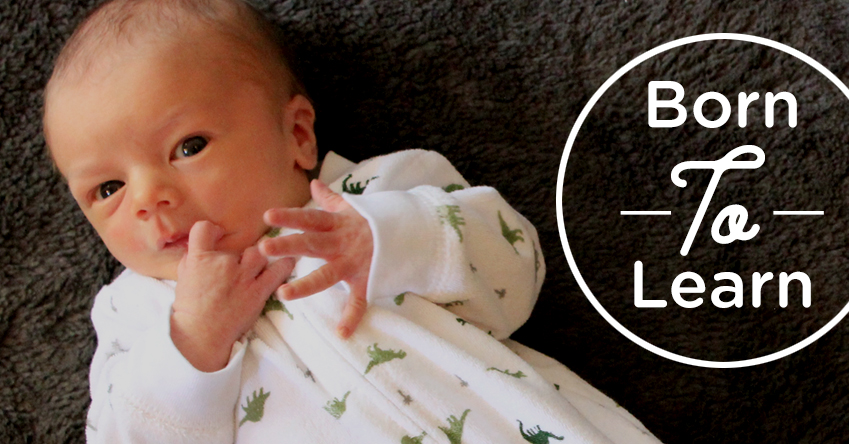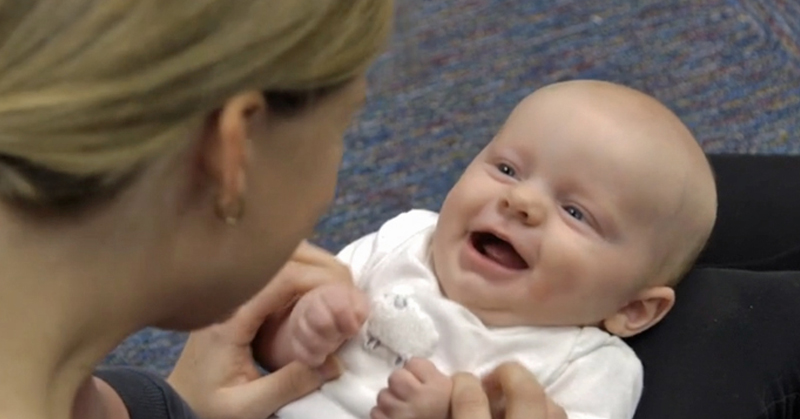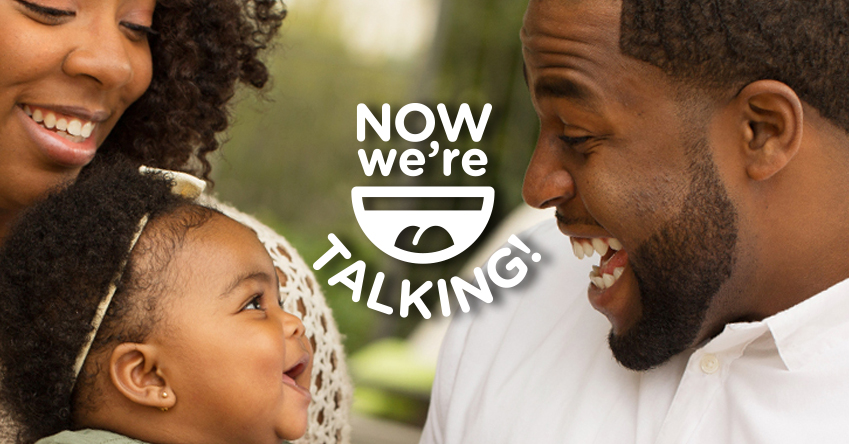
A Conversation with Kathy Hirsh-Pasek
Dr. Kathy Hirsh-Pasek is an expert on how young children learn and develop language skills. She directs the Infant Language Laboratory at Temple University and is a New York Times bestselling author.
What’s the best thing a parent or caregiver can do to support their young child’s healthy development?
Kathy Hirsh-Pasek: “The best thing you can do is have a relationship with your child. We are a social species. Relationships help us learn everything. And as part of that relationship, have interactive conversations with your child. Babies and young kids learn from having fluid, interactive conversations. ‘You speak, I respond,’ in ways that are timely and relevant.
So, you need to respond in the right time frame, usually within about two seconds. That’s the normal pattern of conversation. Now, babies take a little longer to respond, and we often want to jump in too soon, so try to hold back just enough and let the baby have her moment. Wait for that coo or gesture and then respond.
And respond in a way that’s relevant, that has meaning and keeps the back-and-forth going. We’ve all experienced the opposite, when we’re talking with someone on the phone or at a party. They’re not really listening, and they respond with a new topic that’s totally unrelated to what we just said. It’s very annoying, and it disrupts the conversation.”
Why is conversation so important?
KHP: “In doing research, we look at a lot of different babies and try to figure out what kind of behaviors allow us to predict—a year or two or five years out—how strong that child is going to be in language skills and social skills and reading and math and science. And we find that these interactions—those fluid conversations—are the key predictors of later outcomes. In child development, conversation is the golden nugget. Even among very impoverished groups, children who have those conversations with their parents or with other caregivers tend to come out pretty fine. They develop vocabulary, and they succeed. Having fluid, interactive conversations really helps a child learn language, and language is the single-best predictor of everything academic that’s going to come their way.”
How do babies develop the language skills to be able to talk?
KHP: “We’re almost programmed to listen in for the patterns of language. Did you know that by two days of age, children are already able to distinguish mom’s voice— the lilts and the sounds and the expression—from somebody else’s voice? That’s unbelievable! They can hear by about 7 months in utero, and they’ve been listening in the womb. The input is not so clear—with a heartbeat and a stomach growl or two—but there’s enough of that lilt that they can pick up that information.
And they learn even better when they hear infant-directed speech that we all use, with exaggerated sounds and saying their names over and over. They’re picking up on these patterns. They’re listening in, even to the little breaks in the language you give them, so that they’re learning some of their first words even by 6 months of age.
They’re born language-ready, but they have to put the pieces together. They’re little statisticians, but if they don’t hear enough words and conversation, then there’s nothing to do the statistics on.”
How much should parents be talking with their child?
KHP: “Parents feel strapped for time, but just take two minutes to focus completely on your child. Talk to them as if they’re the most interesting person in the world. Talk about the things going on around you. If you have a baby, look where they’re looking and comment on it. But don’t be a running monologue. Be a conversationalist.
Start with a bedtime story. Use your home language. You have a story to tell from your childhood. You have a story about your parents. These are the rich moments to share with your child, and they really lead children into the realm of healthy development.
And you’ll feel it. The minute your child says their first word, it’s almost as if they’ve opened a window for you into their mind. And once that window is open, you can talk about richer, more meaningful things. You’ll absolutely feel it.”
